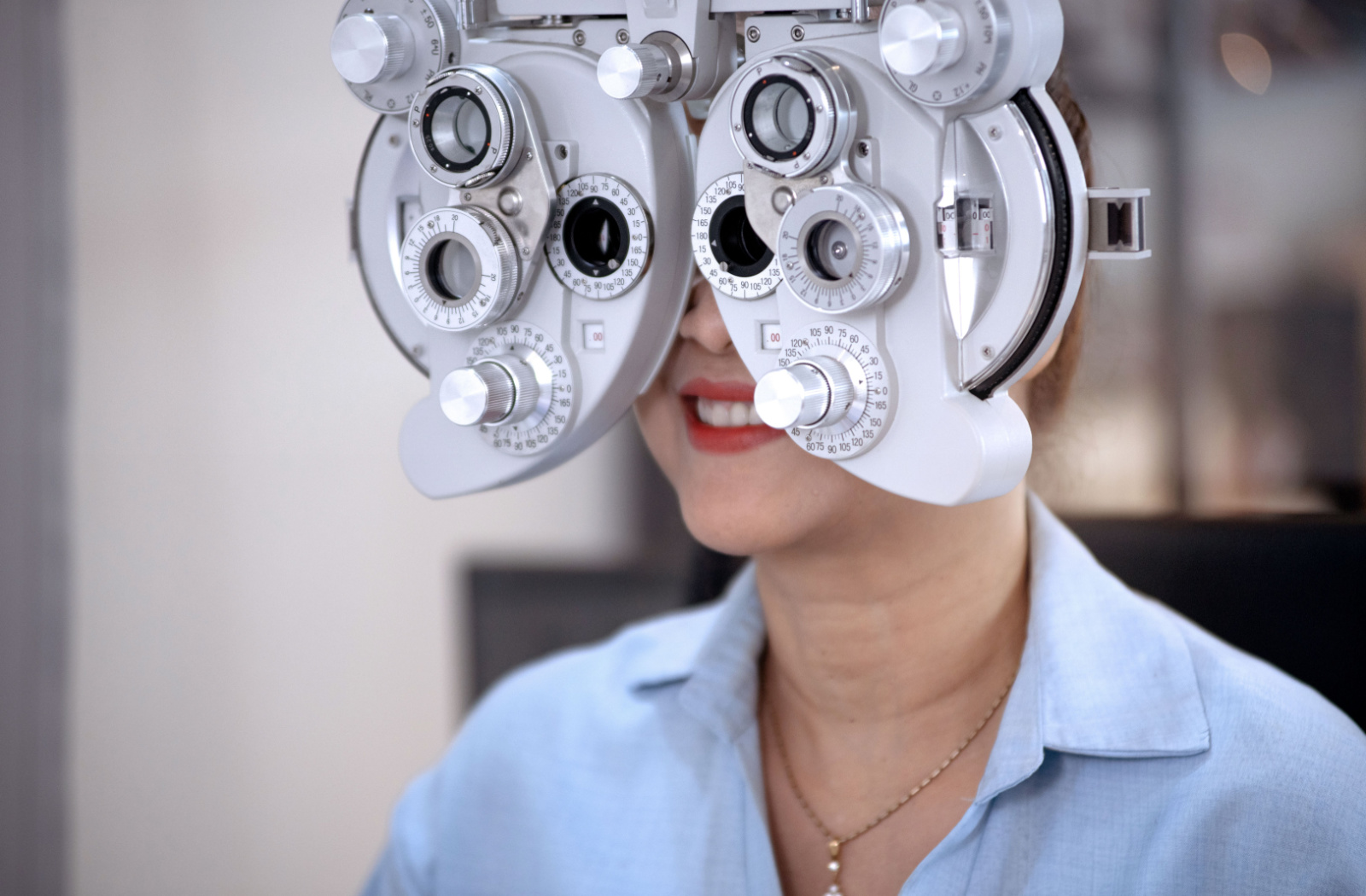As optometry professionals, we understand the importance of maintaining good eye health. However, with our busy schedules and hectic lives, it’s easy to neglect an eye exam.
Yet, as the saying goes, “prevention is better than cure.” So before dismissing your next eye exam appointment or postponing it for a later date, we will discuss the recommended frequency of eye exams and why they are crucial for maintaining healthy vision.
Regular eye exams can detect various eye diseases and other illnesses and should never be avoided. If it’s been a while since your last eye exam, book an exam today with Henderson Vision Centre!
Importance of Regular Eye Exams
Protecting our vision should be a top priority, especially as we age and become more susceptible to eye-related conditions. From simple steps like wearing protective eyewear during outdoor activities to scheduling regular eye exams with an optometrist, there are many ways to keep our eyes healthy and strong.
Attending regular eye exam appointments with your optometrist is one of the best ways to keep your eyes healthy.
Eye Exams & Maintaining Eye Health
Eye exams are not just for individuals who wear glasses or contacts but for everyone.
An optometrist can detect early signs of eye diseases such as glaucoma, macular degeneration, and cataracts during an eye exam. It’s vital to catch these conditions early, as early treatment can prevent vision loss and further issues. Regular eye exams can also help identify other health issues, such as high blood pressure, diabetes, and even cancer.
How Often You Should Have an Eye Exam
It’s crucial for individuals to understand the frequency of eye exams and prioritize their eye health. Depending on your age and any pre-existing conditions, the recommended frequency of eye exams may vary.
Age & Risk Factors for Vision Problems
As we age, our bodies go through several changes. Unfortunately, some of these changes can result in vision problems. It’s essential to understand the risk factors associated with vision problems as we get older so that we can take steps to maintain our eye health.
These risk factors include issues like diabetes, high blood pressure, and a family history of eye diseases. But even if you don’t have any of these risk factors, regular eye exams are still essential for maintaining good vision.
Recommended Timeline for Different Age Groups
- For infants and toddlers, it’s crucial to have their eyes checked during regular pediatric check-ups.
- For school-aged children, exams every 1 – 2 years are appropriate unless a child shows signs of an eye issue. Manitoba Health covers one eye exam every two years for children under 19. Children may be eligible for more frequent eye exams covered by insurance if the eye care provider believes it is necessary.
- Adults ages 19 – 64 should have exams once every two years.
- Adults 65 years old and above should have annual eye exams as they are at higher risk for eye disease or conditions.

Signs That You May Need an Eye Exam Sooner Than Expected
If you are experiencing frequent headaches, eye fatigue, or sudden changes in your vision, it may indicate that an eye exam is necessary sooner than expected. Or, if you have a family history of eye conditions, it is crucial to be proactive about your eye health. Don’t wait until your vision is significantly impaired to schedule your next eye exam.
Changes in Vision or Difficulty Seeing
Many people experience changes in vision or difficulty seeing clearly at some point in their lives and for various reasons. Whether it’s due to age-related conditions like cataracts or glaucoma or from an injury or underlying health condition, the frustration and concern that can come with vision changes is understandable.
Eye Discomfort or Pain
Eye discomfort or pain can be a frustrating and sometimes debilitating experience. Whether it’s caused by extended screen time, allergies, or more serious underlying conditions, the sensation can make day-to-day life difficult. Addressing eye pain quickly and effectively is vital, and treatment may involve lifestyle changes, medication, or other interventions.
Factors That May Influence the Frequency of Eye Exams
Several factors may influence the frequency of your eye exams. For example, age, family history, and certain medical conditions like diabetes can increase your risk for eye problems. Additionally, getting your eyes checked more frequently is vital if you work in a job requiring a lot of screen time or exposing yourself to hazardous materials.
Family History of Eye Diseases
When it comes to our health, there’s no doubt that genetics plays a significant role. If your family has a history of eye diseases, it’s crucial to be proactive and stay informed about your eye health.
While it can be concerning to think about potentially inheriting a condition, understanding the nature of the disease and getting regular check-ups can help detect any issues early on.
Existing Health Conditions
Pre-existing health conditions, such as diabetes or high blood pressure, can significantly impact one’s overall well-being. It’s important to remember that these conditions can also significantly affect the health of your eyes.
Regular eye exams are crucial in detecting any vision changes that may have resulted from these conditions. Through these exams, optometrists can identify potential signs of diabetic retinopathy, which can lead to vision loss if not treated promptly.
Time to Book an Eye Exam in Winnipeg
At Henderson Vision Centre, we put your eye health first. If it has been a while since your last eye exam, it is time to book an appointment. Contact us today for a clearer vision tomorrow.



